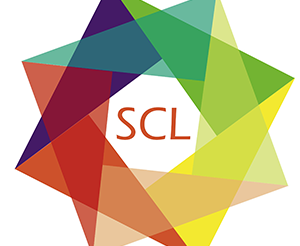SCL: The Irish Central Bank Innovation Hub Two Years On

The Central Bank of Ireland inaugurated its Innovation Hub in April 2018 “to enable open and active engagement” with firms and stakeholders involved in developing financial services technology, by providing a direct, less formal, line of communication to the CBI [for more see here]. The CBI has recently published its ‘Innovation Hub 2019 Update’, which tracks the Hub developments from its establishment through to the end of 2019. A further progress update is expected in early 2021, which will no doubt be impacted by developments in relation to COVID-19.
What is the Hub?
The Hub is part of a trend of measures among regulatory authorities aimed at promoting innovation in financial services, which range from more or less formalised industry dialogue programmes to sand-box type environments. The Hub is mutually beneficial to industry and the CBI. It gives new entrants and existing operators the opportunity to ask questions and receive feedback from the CBI, while giving the Irish regulator an early insight into future growth areas and help it identify points which may need to be addressed before developments take place.
The Hub also promotes engagement by conducting outreach visits and hosting Fintech roundtables to discuss various issues. The ability to engage in dialogue with the regulator, before launching a regulated financial services product or service, is a development which the technology and financial services industry has welcomed, as reflected in the 2019 update.
Who is Engaging?
The 2019 update shows that the Hub has had 166 engagements since its inception: 114 of these came from firms involved in innovation, with the balance made up of other stakeholders such as academics, incubators and other regulators. Over one third of firms who used the Hub were early stage start-ups, 80% of which were founded in Ireland. Start-ups were generally interested in the regulatory parameters for future projects, while more mature firms who utilised the Hub often had practical questions about the authorisations process and the CBI’s innovation policy. Many also just sought to show their solutions to the CBI.
Notably, the Hub has also had enquiries from non-Irish founded companies, who are using the it as the first point of contact with CBI. Overall, it is noteworthy that 92% of all enquiries were made by firms which were not authorised by the CBI, clearly showing the potential for changes in the regulated financial services arena brought about by new entrants.
What Sectors are Using the Hub?
The top three sectors of engagement in descending order were: 1) Regtech; 2) payments; and 3) markets and exchanges.
The vast majority of Regtech enquiries were requests to demonstrate the product to the CBI, with the most common Regtech applications being solutions for risk-management, compliance monitoring and KYC. While still the second most popular sector of engagement, payment queries decreased compared with 2018 and frequently related to the authorisation process. The CBI explicitly noted the “increase in the payments related enquiries from larger, regulated firms”, indicating the growing need for innovation in the field on foot of legislative developments such as the coming into force of the second Payment Services Directive (PSD2).
In relation to markets and exchanges, 71% of the technology deployment queries were focused on distributed ledger or blockchain technology applications. Of these, 59% related to crypto assets, with the second most common being algorithmic trading applications.
Focus on Fintech Developments
The majority of firms using the Hub are focused on “unbundling the financial services value chain”, predominantly by developing platforms that provide an extra layer between back end systems and front end applications. The Hub engaged with 19 firms who are deploying, or seeking to deploy, blockchain technology applications, largely in the payments and market and exchanges arena. Of these, the more advanced applications had “ambitious strategies to build new financial services infrastructures.”
The Hub had enquiries from 21 firms of varying sizes in relation to deploying Artificial Intelligence (“AI”), predominantly in the Regtech sphere. Interestingly, the CBI has stated that it has yet to encounter any consumer-facing AI applications. The CBI also noted a small number of Insurtech enquiries in the in the area of on-demand insurance. In response to the comparatively low number of enquiries in this area, the Hub held an Insuretech discussion event in May 2019.
Conclusion
More than two years after it opened, the Hub appears to have become a well-frequented channel for engagement with the CBI for firms and start-ups operating in the wider Fintech industry. The Hub’s announcement to continue engaging actively with firms and stakeholders and to meet more of them in 2020, following its outreach visits conducted over the course of 2019, will be welcome news to those interested in opening discussions with the CBI.
However, it remains to be seen how much face-to-face engagement will be possible given the ongoing COVID-19 restrictions and the associated turmoil caused in economies worldwide. Notwithstanding this unexpected turn of events, Fintech, Regtech and Insuretech are here to stay and innovation is expected to continue in these areas, some of which has been made even more urgent and accelerated due to the prevailing circumstances, such as trends in contactless payments.
